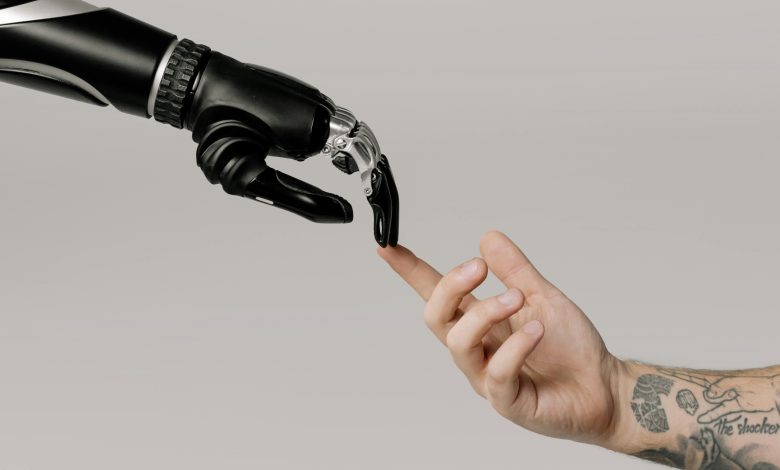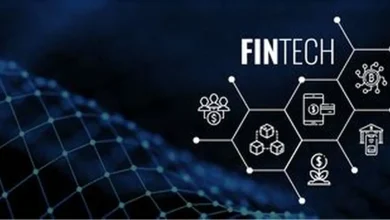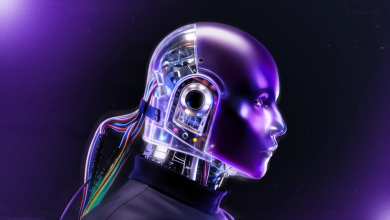
Headlines in recent times have been dominated by economic growth powered by exciting new technologies – Artifical Intelligence is well known, but we’re now hearing about Quantum, Edge Computing and Digital Twins. It is beyond doubt that the technological landscape is evolving at an unprecedented pace.
However, amid all the hype over ‘hard tech’, it’s clear that the value of soft skills is as important as it’s ever been.
The Enduring Power of Human Skills
Human skills such as empathy, creativity and communication are emerging as strategic differentiators in the AI-driven workplace. As machines become adept at executing ever complex tasks, there are still key areas where AI genuinely struggles. For example, while a large language model can generate persuasive text, it cannot mediate conflict with genuine empathy or navigate a tense team meeting.
This shift creates an interesting paradox: the more we are automating, the more we are seeking out human-centric skills. If we take as an example, the deployment of AI in healthcare. While algorithms can assist in diagnosing diseases with pinpoint accuracy, the delivery of that diagnosis—especially when it involves devastating news—requires compassion, sensitivity, and emotional intelligence. These are not just “nice-to-haves”; they are essential to patient care and AI cannot replicate this.
Soft Skills in AI Development
Even within the realm of AI development itself, soft skills play a critical role. Building responsible AI systems requires cross-disciplinary collaboration—between data scientists, legal and ethical teams, domain experts, and end-users. It demands the ability to communicate complex ideas clearly, negotiate trade-offs, and understand and respond to diverse perspectives.
In addition, the ethical challenges posed by AI— for example algorithm bias, surveillance concerns, and the impact on society of increased automation—require inherently soft skills such as moral reasoning and stakeholder engagement.
Leadership as Technology Evolves
Leadership in a hard tech era, is also not just about demonstrating technical superiority. Innovation thrives in environments where soft skills are cultivated. Leaders who can listen actively, resolve conflict and build an inclusive culture are better positioned to harness the full potential of their teams. In addition, leaders who allow team members to feel safe, take risks and express themselves freely, are most likely to get the best out of their workforce – this is far more important than technical knowledge alone.
Education and the Skills Gap
As AI reshapes the job market, employers are now appreciating the challenge that training their employees on technical skills alone is insufficient. We know that AI excels at tasks such as identifying patterns, processing data and executing repetitive tasks quickly and efficiently. In the finance sector, for instance, AI systems can analyse vast transaction datasets to detect fraudulent activity, assess credit risk across thousands of applications, and identify market trends that inform investment strategies – all of which would take human analysts hours.
However, customers of these finance companies who are looking to make an important financial decision are less likely to follow financial advice if they know that AI was involved in making it and much prefer their advice to come from a human expert instead.
This presents a clear opportunity for employers. Training programmes should focus on the development of interpersonal and consultative skills that build client confidence, whilst simultaneously teaching employees to leverage AI-generated insights in tandem, as a foundation for more informed, personalised advice.
Striking the right balance between human and AI skills will create a future-ready workforce and ultimately allow employees to thrive in their roles.
Technical training programmes must therefore be complemented by training in communication, collaboration, and ethical reasoning. The best technical learning, whether that be via short-courses, apprenticeships or degrees take an interdisciplinary approach, including the consideration of ethics, sustainability and moral judgement. This will help technologists of the future appreciate the broader implications of their work and recognise that soft skills are not an ‘add-on’, they are fundamental.
From Anxiety to Adoption: The Future of Work is Human-Centred
Despite fears of job displacement, the future of work is not about humans versus machines—it’s about humans working alongside machines. In this new-world, soft skills become the glue that binds human and machine teams together.
Organisations that invest in soft skill development are better equipped to navigate change, foster innovation, and build resilient cultures. They are also more likely to attract and retain talent, as employees increasingly seek workplaces that value empathy, inclusion, and purpose.
These initiatives work best when they’re personalised to the needs of different employees, are continuously drip-fed into training rather than being treated as a one-off event and when it is made clear that AI works in tandem with human skills, not against them.
Building Competitive Advantages Through AI-Ready Workforces
When implemented in tandem with human capabilities, successful AI adoption can deliver significant financial and economic benefits that directly impact competitiveness.
For example, a future-ready workforce which combines digital fluency with strong human capabilities becomes a strategic asset that differentiates businesses in an increasingly crowded landscape. Furthermore, organisations which are investing in AI integration and workforce development are better positioned to adapt to market shifts and respond to customer demands more effectively.
Investing in training programmes today delivers measurable returns tomorrow through increased productivity and sustained levels of competitiveness across the market.
Final Thoughts
In the hard tech era, it’s tempting to focus exclusively on algorithms, data, and engineering breakthroughs, especially as these are what grab the headline space. But doing so risks overlooking the very qualities that make technology meaningful and impactful. Soft skills are not in competition with hard tech—they are integral to how the workforce of the future needs to develop.
By investing thoughtfully in training programmes that nurture this complementary human-AI partnership, employers can ensure their workforce isn’t just prepared for the future but equipped with exactly the right skillset needed to shape it and drive sustainable business growth.
As we continue to build even smarter machines and AI becomes yesterday’s news as Quantum Computing comes to the fore, we must not lose focus on the importance of cultivating wiser humans. The future belongs to those who understand these new technologues but also to those who can connect, care, and lead with integrity. In the end, it is our soft skills that will determine how well we put our hard tech to use and enable it to serve humanity for good, and whether it will serve humanity or merely dazzles it.




